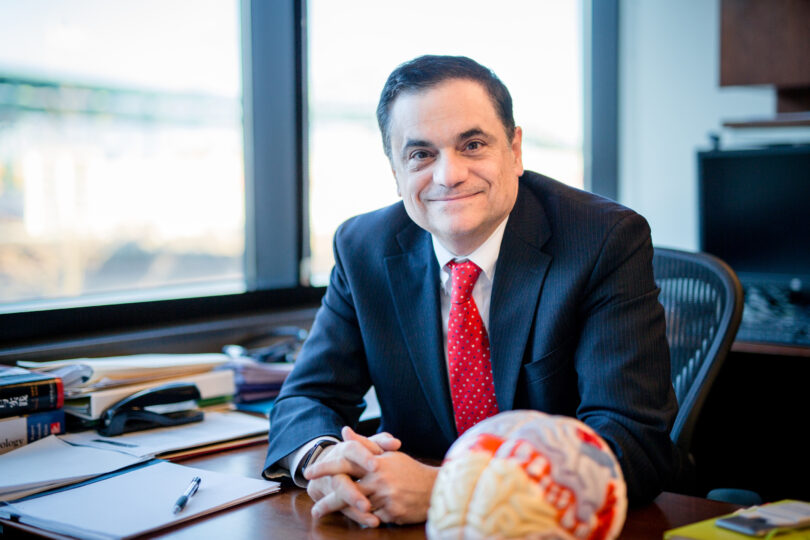When Ross Zafonte’s grandfather had a stroke, he felt the need to do more. He wanted improved treatment options and better therapies.
So when he entered medical school, Zafonte dedicated himself to improving care for future patients.
“I began to ask, ‘Is this all we can do? Can we do better?’ That shaped how I thought about this subject, and I started looking at specificity in care rather than generalities,” says Zafonte BS ’81, now an internationally recognized researcher and pioneer in the brain and spinal cord injury field, as well as in treatment and recovery from those injuries. “I became very interested in how we understand a number of issues related to the recovery process.”
Zafonte earned his bachelor’s degrees in psychology and biochemistry from the University of Georgia in 1981. Now, he is president of the Spaulding Rehabilitation Network, the Earl P. and Ida S. Charlton Professor, chair at Massachusetts General Hospital and Brigham and Women’s Hospital, and Harvard Medical School’s Department of Physical Medicine and Rehabilitation. He also serves as the principal investigator of the Football Players Health Study at Harvard.
The groundwork laid by his education at UGA helped strengthen his role as a leader.
“My time at UGA resonates in so many different ways,” Zafonte says. “There are a lot of wonderful institutions in this country, but there is something that changes when you go to Athens, and it really influences your genome forever. And I think that’s important—it’s something bigger than yourself.”
Over the last two decades, Zafonte has focused on improving understanding of the physical symptoms of traumatic brain injury, with the goal of better addressing the health needs of individual patients.
“By defining these elements, we can check whether some clinical treatments are valuable or not valuable,” Zafonte says. “It’s a chance to see the challenges and opportunities of treatments.”
An improved understanding of these injuries also improves preventive measures.
More care is available following a brain injury now, Zafonte says, which can prevent further injury or longer-term health effects down the line. His research has led to numerous awards, including the Innovative Clinical Treatment Award from the North American Brain Injury Society, the 2020 American Academy of Physical Medicine’s Distinguished Member Award, the American Congress of Rehabilitation Medicine’s Stanley Coulter and Edward Lowman Award, and a Public Service Medal from the United States Department of the Army for his work with veterans.
It’s an impressive list of accolades, but Zafonte is most proud of his work’s impact on advancing the conversation around traumatic brain injuries and the mentees he has trained.
“We’re pushing issues forward and hopefully starting to improve the quality of life of people with brain injuries and concussions,” he says, “including our military service members and those playing a sport at the highest level.”








